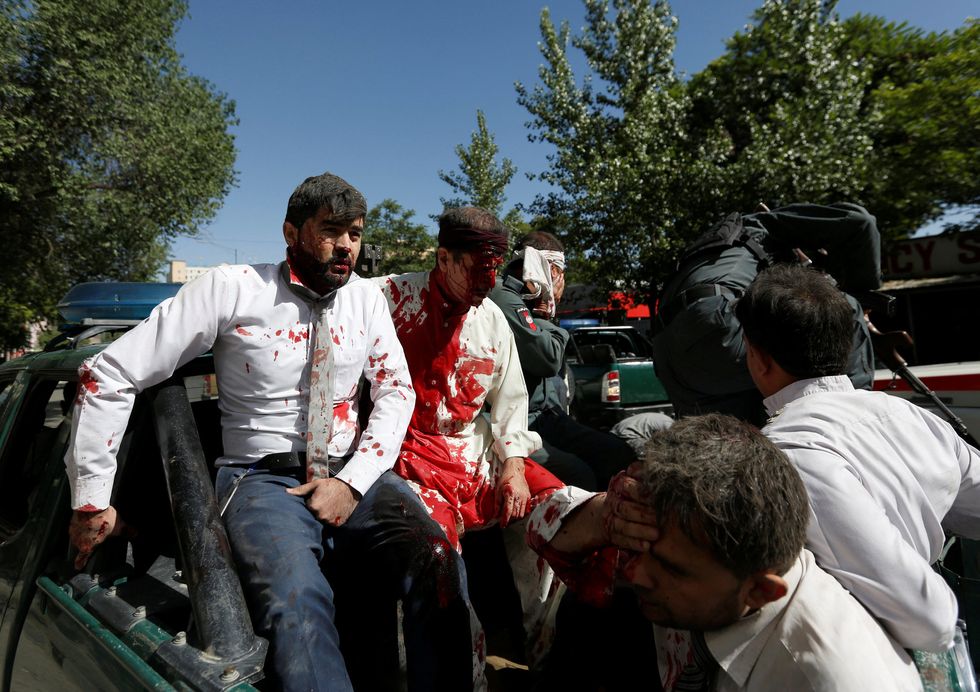On Wednesday morning, a few days into the Islamic holy month of Ramadan, a truck bomb exploded in Kabul, Afghanistan leaving approximately 90 people dead, and another 450 injured- most of whom were civilians.
The driver carried the bomb in a concealed water truck into Kabul’s diplomatic quarter, one of the city’s most fortified sections, near the Presidential Palace and a few western embassies. The area was also congested in the early morning rush hour with civilians, including hordes of shoppers and school children, most of whom make up the death/injury count.
Following the explosion, emergency aides worked to rescue survivors trapped in the rubble, while ambulances began carrying both the wounded and the dead away from the site. Family members of victims scrambled to locate relatives via casualty lists or approaching emergency services for news on the status of loved ones. Almost immediately afterward, residents of Kabul began lining up at local hospitals to donate blood, with The Ministry of Public Health (MoPH) reporting almost 11 thousand fluid ounces collected since the attack.
While no group has yet claimed responsibility for the attack, Afghani intelligence services suspect that a Pakistani Taliban-affiliated group known as the Haqqani Network may be behind the attack.
While Afghanistan continues its long history of warfare, recently Kabul has existed in a relative bubble of development and peace through a solid wall of Western and Afghani intelligence services. Yet the attack on Wednesday, a series of ISIS bombings on Tuesday in Baghdad and an attack in Kabul earlier in March (when ISIS gunmen disguised themselves as medical personal to breach a military hospital near the US Embassy), indicate that the city and the country suffer from not only deteriorating security, but yet another extension into an already 16-year long war.
This attack also comes amid President Trump weighing the decision to send another 3,000-5,000 troops to train and advise the Afghani military, and with Trump’s recent unsatisfactory NATO address, other European countries may be hesitant to contribute to any sort of further troop commitment in the war-torn state.
There is, however, always some way to help. Some places to donate/support aid efforts in Afghanistan include the International Rescue Committee, Islamic Relief, Afghanistan Relief Organization and the International Medical Corps. Keep searching for ways to help in any way that you can- no effort is a waste, however small.
Afghanistan continues to bleed. Its civilians, its men, women, and children continue to feel the devastating effects of nearly two decades of destabilization, terrorism and armed conflict. With or without foreign intervention, the end of war seems farther than it ever has before. Yet, Afghani citizens and those of us watching the country from afar continue to hope for peace.
Do not forget Afghanistan.






 The minimum wage is not a living wage.
StableDiffusion
The minimum wage is not a living wage.
StableDiffusion
 influential nations
StableDiffusion
influential nations
StableDiffusion












